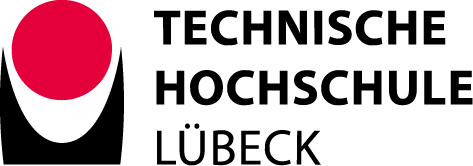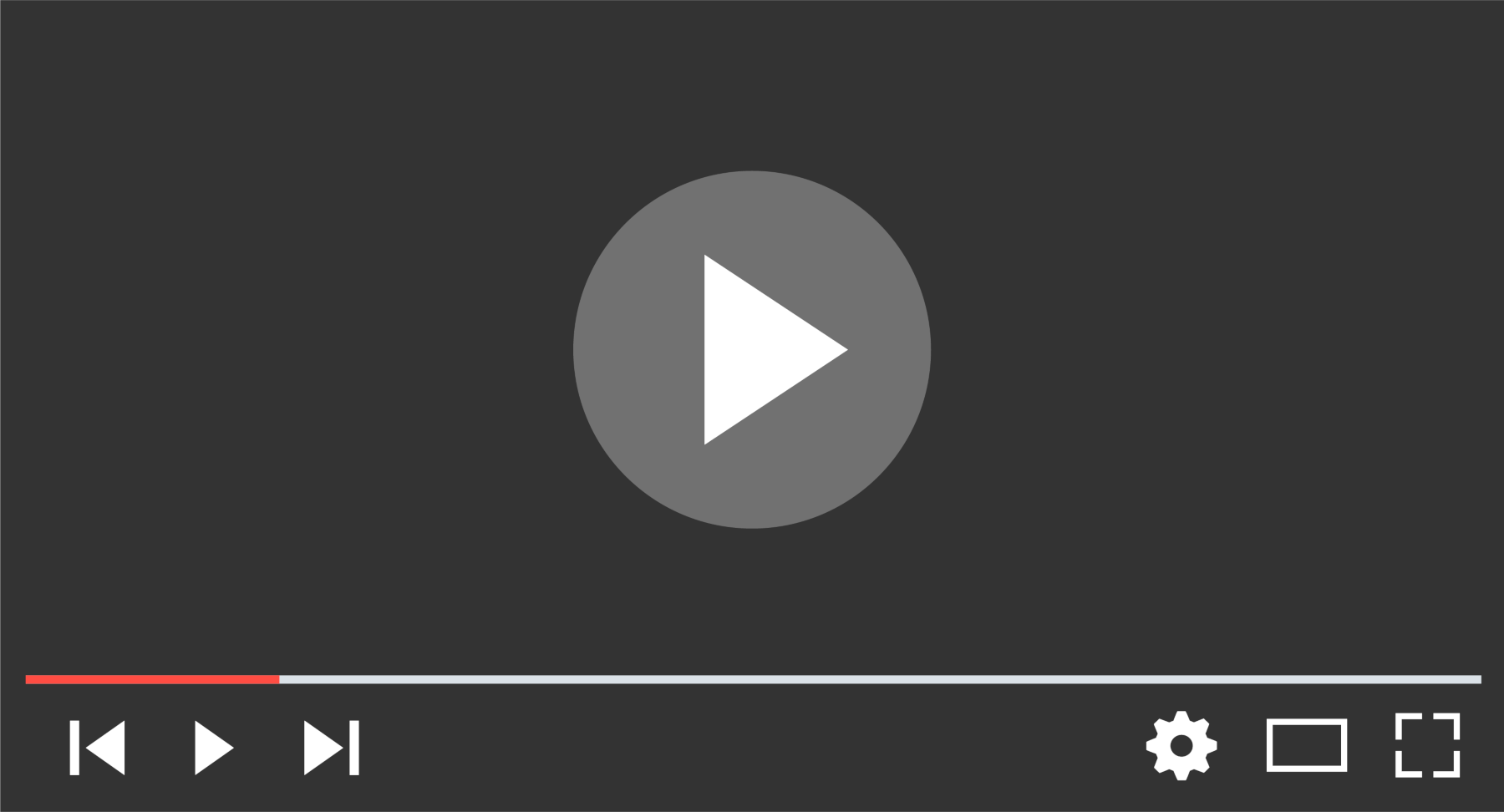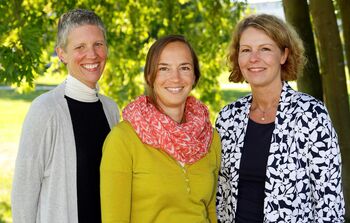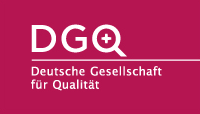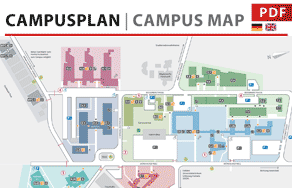Key Qualifications
- Career Development
The CD offers free services for students of all departments and semesters of Technische Hochschule Lübeck and their graduates until two years after graduation.
Our offers:
- Individual counseling on study, job and career issues
- Application portfolio check
- Workshops on the development of key competencies, application training and workshops on life and career planning
- Infothek on job search, occupational fields and job opportunities
- Database to search for companies
For the workshops, please register independently in the learning room: CD event series
Contact:
TH Lübeck / Career Development
Mönkhofer Weg 239, Building A.1, Entrance C, Room A.1-0.42
cd(at)th-luebeck.deFür Unternehmen
TH Lübeck offers employers several ways to get in touch with students:
- Stellenwerk: Employers can publish their job offers in Stellenwerk, the official job portal of the Lübeck universities. Unfortunately, another type of publication is not possible at TH Lübeck
- Company Contact Fair: At the career day, companies have the opportunity to get in touch directly with students of the TH
- The dual study program StudiLe at the TH Lübeck
Representative for Dual Study Programs
Mee Hwa Ruf M.A.
Room: F.9-2.09
Phone: +49 451 300 5270
E-Mail: mee.hwa.ruf(at)th-luebeck.de
www.studile.deFor a personal consultation, please contact our consultant by phone or email:
Jasmin Sponholz M.A. Telefon: +49 451 300 5456 E-Mail: jasmin.sponholz@th-luebeck.de Raum: A.1 36-0.42 - Language Center
Language Center
As a central institution, the Language Center is responsible for providing compulsory and elective language courses at the THL. The wide range of application- and competence-oriented language teaching is aimed at TH students of all departments and can also be used by students of the University (UzL) as well as the University of Music (MHL).
At the Moodle platform, "Lernraum," you will find our current course offerings at the beginning of each semester. You can then register for your desired courses there.
UzL and MHL students without access to "Lernraum" are asked to contact the Language Center directly for further questions regarding lecture schedules, course registration, etc. >>>write E-Mail

Foreign language competence is a key qualification for all students who want to secure their professional opportunities at home and abroad. The Language Center offers suitable foreign language courses in preparation for a semester abroad, provides international students with German courses at all levels, and offers a comprehensive range of courses in specialized English. The offer is supplemented by a course on the topic of “Intercultural Competence”.
Participation in the courses offered by the Language Center is free of charge. Most of the language courses are so-called elective modules in which examinations can be taken. Depending on the study regulations and the individual course of study, 5 credit points can be credited for these courses.
- English

Business English I (B2 / 4 SWS): This course is aimed at students of all study fields who want to improve their command of English particularly in a business context. The relevant Business English skills practiced are based on authentic materials (business texts) and case studies. Course topics are e.g. job applications, e-mails, meetings, presentations and small talk in a professional context.
Business English II (B2-C1 / 4 SWS): The Business English II course is designed to increase the students’ knowledge of the language and key concepts in business and economics to enable them to work in a cross-cultural environment locally and internationally. Key topics include management and motivation, recruitment, company structure, business entities, the different sectors of the economy, production, products, marketing and advertising, banking, venture capital and market structure and competition.
Effective English Communication for Science and Engineering (B2-C1 / 4 SWS): Are you seeking to refine your skills in scientific writing in English? Have you already written scientific texts such as lab reports or Bachelor's theses, either in English or another language? Are you looking to optimize your approach, tool usage, or workflow or simply gain confidence and expertise?
If so, this course is just what you need!
Designed for students who already possess basic knowledge of academic writing, our course aims to elevate your English language and academic competencies, empowering you to communicate with greater confidence and effectiveness in English-speaking academic settings.
In addition to providing guidance on scientific writing and science communication in English, our course offers individualized instruction and incorporates the use of cutting-edge AI tools.
Throughout the course, you'll delve into various facets of scientific writing and communication, including literature search, reading and note-taking, writing proficiency, and spoken communication within scientific contexts. By the end of the course, you'll have the skills and knowledge to confidently navigate the demands of academic writing & speaking in English.English for International Certificates (B2-C1 / 2 SWS): This course is aimed at students with a good command of English who intend to take an internationally recognized test like the TOEFL, IELTS, or various Cambridge Certificates. The course provides thorough, comprehensive preparation for the B2/C1 level.
Technical English A2 (A2 / 4 SWS): This course is designed for students with a low level of English who wish to improve their language skills in the field of technology and engineering.
Listening, reading, writing and speaking are practiced in relevant contexts such as simple technical instructions, manuals, technical specifications and process descriptions.
The face-to-face course for students of all disciplines has a communicative and interactive approach.Technical English I (B1-B2 / 4 SWS): This course provides technical English skills for engineering. The learning objective is to master listening, reading, writing and speaking in technical English at CEFR level B2. You will practice your reading and listening comprehension using subject-related materials and learn the basics of technical and scientific writing. Oral communication skills are trained in discussions on technical and study-related topics. You will also prepare (and give) your own presentation on a subject-specific topic and practice communicating in a professional context.
Technical English BAU (B2 / 4 SWS): This interactive course is designed for students of civil engineering, architecture, urban design and sustainable building technology who want to improve their English skills in a professional context. You will expand your technical vocabulary and practice communicating ideas, designs, and plans clearly in both speaking and writing.
- German
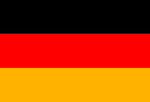
German A1 (Beginner / 8 SWS): On this level you will study the basics of German communication in the context of university and everyday life. Practicing the four skills Listening and Speaking, Reading and Writing you will constantly extend your vocabulary and adopt the basic grammar knowledge. You will learn about Germany, the Germans and their culture.
Level A1 is subdivided into the modules A1.1 and A1.2, each covers 4 SWS.German A2 (Elementary / 8 SWS): On this level, learners will extend their basic knowledge of German. The four skills Listening and Speaking, Reading and Writing are trained systematically. Vocabulary and grammar skills are enhanced. Students will learn to interact and communicate in routine situations and deepen their knowledge of German culture and society.
Level A2 is subdivided into the modules A2.1 and A2.2, each covers 4 SWS.German B1-B2 (Intermediate / 8 SWS): In these courses for intermediate learners you will extend your vocabulary and your knowledge on grammar systematically. When practicing the four skills of Listening and Speaking, Reading and Writing you will learn how to express yourself appropriately in university settings and everyday situations. You will also deepen your knowledge of German culture and society.
Levels B1 and B2 are subdivided into the modules B1.1 and B1.2 resp. B2.1 and B2.2, each covers 4 SWS.German C1 (Proficiency / 8 SWS): Die bereits vorhandenen sprachlichen Fertigkeiten und Kompetenzen werden weiterentwickelt, sodass Studierende im beruflichen und wissenschaftlichen Kontext wirksam und flexibel kommunizieren können. Die 4 Kompetenzen Hören, Lesen, Sprechen und Schreiben werden anhand anspruchsvoller allgemeiner und akademischer Inhalte gezielt trainiert. Die Vermittlung spezifischer sprachlicher und stilistischer Strukturen der deutschen Sprache steht ebenso im Fokus wie der Aufbau eines differenzierten akademischen Wortschatzes.
Die Stufe C1 ist in die beiden Module C1.1 und C1.2 unterteilt (je Modul 4 SWS).German B2/C1 Grammar + Conversation (B2-C1 / 2 SWS): Diese Veranstaltung richtet sich an alle Studierenden, die schon relativ fließend Deutsch sprechen können und ihre Deutschkenntnisse (mit geringem Zeitaufwand) erweitern oder (einfach) regelmäßig Deutsch üben möchten. Der Fokus liegt in diesem Kurs auf der Konversation, d.h. der Wortschatz sowie der sprachliche Ausdruck werden in unterschiedlichen Kommunikationssituationen trainiert. Hierbei stehen aktuelle Themen auf Niveau B2/C1 im Mittelpunkt. Darüber hinaus werden Grammatikinhalte wiederholt oder neu erarbeitet sowie sprachlich in entsprechenden Kontexten angewendet. Deutschkenntnisse auf Niveau B1+ werden vorausgesetzt.
German B2/C1 Conversation + Vocabulary (B2-C1 / 2 SWS): Dieser Kurs richtet sich an Studierende mit fortgeschrittenen Deutschkenntnissen, die ihre Sprachkompetenz mit wenig Zeitaufwand vertiefen und oder nur sprachlich „am Ball bleiben“ möchten. Im Mittelpunkt steht die mündliche Kommunikation: In abwechslungsreichen Gesprächssituationen erweitern Sie gezielt Ihren Wortschatz, verbessern Ihre Ausdrucksfähigkeit und gewinnen mehr Sicherheit im spontanen Austausch. Grundlage bilden aktuelle Themen auf dem Niveau B2/C1. Bei Bedarf greifen wir außerdem wichtige Grammatikthemen auf und wiederholen sie. Deutschkenntnisse auf Niveau B1+ werden vorausgesetzt.
German language at university level: Academic Language and Scientific Work (C1-C2 / 4 SWS): Diese Veranstaltung richtet sich in erster Linie an internationale Studierendein den deutschsprachigen Bachelor- und Master-Studiengängen. Du hast bereits ein hohes Deutschniveau, stößt im Studium jedoch ab und zu auf sprachliche Herausforderungen? Du fühlst dich beim Lesen von Fachtexten, beim Verstehen der Fachvorlesungen oder beim Schreiben von Texten im Studium manchmal überfordert? In diesem Kurs erlangst du Strategien zur Verbesserung deiner studienrelevanten Sprachkompetenz und erfährst, worin die Besonderheiten der Wissenschaftssprache Deutsch liegen. Neben dem gezielten Training der Schreibkompetenz stehen vor allem die Besonderheiten der Hochschul-Kommunikation sowie der akademische Sprachstrukturen im Fokus. Die Lehrveranstaltung wird durch ein Tutorium begleitet, welches als zusätzliches Unterstützungsangebot nach Bedarf genutzt werden kann. Voraussetzung sind mindestens Deutschvorkenntnisse auf C1-Niveau.
German for Engineers (4 SWS): Diese Veranstaltung richtet sich an internationale Studierende in den deutschsprachigen Bachelor- (und Master-) Studiengängen, die bereits ein hohes Deutschniveau haben. Trainiert wird fachübergreifender Wortschatz aus Technik und Ingenieurswesen sowie Kommunikation in studienrelevanten Situationen. Ein weiterer Schwerpunkt ist das Beschreiben und Präsentieren von technischen Abläufen, Produkten und Zukunftstechnologien. Einblicke in Unternehmen aus verschiedenen Ingenieursbereichen/ der Ingenieursbranche, Bewerbungstraining und „Networking“/Netzwerken stehen ebenfalls im Mittelpunkt dieses Kurses.
- Chinese

Chinese I (A1.1 / 4 SWS): Der Anfängerkurs vermittelt Grundkenntnisse der chinesischen Sprache. Diese umfassen die korrekte Aussprache, das Verstehen, Hören und Lesen von einfachen Texten. Die inhaltlichen Schwerpunkte sind Phonetik, Grammatik und das Erlernen einfacher Schriftzeichen. Ziel ist es, sich in elementaren Alltagssituationen angemessen verständigen zu können sowie sich im chinesischen Umfeld orientieren zu können. Gleichzeitig machst du dich mit den kulturellen Hintergründen der chinesischen Sprache vertraut und erwirbst wichtige Kenntnisse über Land und Leute.
Chinese II (A1.2 / 4 SWS): In diesem Kurs werden die im Kurs Chinesisch I erlernten Fähigkeiten und Fertigkeiten erweitert. Die Studierenden sollen jetzt in der Lage sein, sich in elementaren Alltagssituationen selbständig zu orientieren und auszudrücken. Schreibkenntnisse und landeskundliches Wissen werden vertieft.
Chinese III (A2 / 4 SWS): In der Lehrveranstaltung erweitern Sie die bisher erworbenen Kenntnisse im Hinblick auf die chinesische Zertifikatsprüfung HSK 2. Nach eingehender Wiederholung der relevanten Inhalte aus Chinesisch I und II wird gezielt auf die Prüfung vorbereitet. Im Vordergrund stehen das Hör- und Leseverständnis, das auf HSK 2 Niveau ca. 360 Schriftzeichen umfasst.
- French
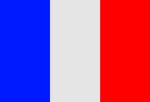
French I (A1 / 4 SWS): Dieser Kurs ermöglicht Studierenden einen schnellen und effektiven Einstieg in die französische Sprache. In einfachen Kommunikationssituationen aus dem Alltags- und Universitätsleben werden die vier Kompetenzen Hören und Sprechen, Lesen und Schreiben vermittelt. Du erwirbst den Basiswortschatz und erlernen die grammatischen Grundlagen, eingebettet in anwendungsbezogene Kontexte. Darüber hinaus erfährst du Interessantes über die französischsprachige Welt.
French II (A2 / 4 SWS): In diesem Kurs baust du deine bereits erworbenen Grundlagen der französischen Sprache aus. Die 4 Kompetenzen Hören, Lesen, Sprechen und Schreiben werden systematisch und anwendungsbezogen erweitert, Grammatikkenntnisse und Wortschatz werden vertieft. Du übst, dich in allgemeinen und studienbezogenen Routine-Situationen sprachlich angemessen auszudrücken, und erweiterst auch dein landeskundliches Wissen.
French III (B1 / 4 SWS): Dieser Kurs richtet sich an fortgeschrittene Französischlernende. Sprachliche Kompetenzen werden gezielt und anwendungsbezogen erweitert, Grammatikkenntnisse und Wortschatz werden weiter vertieft. Du übst, dich in allgemeinen und studienbezogenen Situationen sprachlich angemessen auszudrücken. Landeskunde und Themen zum aktuellen Zeitgeschehen ergänzen den Unterricht.
- Italian

Italian I (A1 / 4 SWS): Dieser Kurs ermöglicht Studierenden einen schnellen und effektiven Einstieg in die italienische Sprache. In einfachen Kommunikationssituationen aus dem Alltags- und Universitätsleben werden die 4 Kompetenzen Hören und Sprechen, Lesen und Schreiben vermittelt. Du erwirbst den Basiswortschatz und erlernst die grammatischen Grundlagen, eingebettet in anwendungsbezogene Kontexte. Darüber hinaus erfährst du Interessantes über Land und Leute.
Italian II (A2 / 4 SWS): In diesem Kurs baust du deine bereits erworbenen Grundlagen der italienischen Sprache aus. Die 4 Kompetenzen Hören, Lesen, Sprechen und Schreiben werden systematisch und anwendungsbezogen erweitert, Grammatikkenntnisse und Wortschatz werden vertieft. Du übst, dich in allgemeinen und studienbezogenen Routine-Situationen sprachlich angemessen auszudrücken, und erweiterst auch dein landeskundliches Wissen.
- Russian
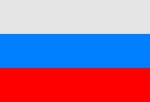
Russian I (A1 / 4 SWS): Dieser Kurs vermittelt den Studierenden Grundkenntnisse der russischen Sprache. In einfachen Kommunikationssituationen aus dem Alltags- und Universitätsleben werden die vier Kompetenzen Hören und Sprechen, Lesen und Schreiben intensiv trainiert. Du erwirbst den Basiswortschatz, erlernst die kyrillische Schrift sowie die grammatischen Grundlagen der russischen Sprache. Gleichzeitig erfährst du Interessantes über Land und Leute.
Russian II (A2 / 4 SWS): In diesem Kurs baust du bereits erworbenen Grundlagen der russischen Sprache weiter aus. Die vier Kompetenzen Hören, Lesen, Sprechen und Schreiben werden systematisch und anwendungsbezogen erweitert. Neben dem Schreibtraining in kyrillischer Schrift stehen die Vertiefung von Grammatikkenntnissen und Wortschatz im Vordergrund. Du übst dich darin, dich in allgemeinen und studienbezogenen Routine-Situationen sprachlich angemessen auszudrücken. Außerdem erweiterst du auch dein landeskundliches Wissen.
Russian Practice+ II (A2 / 2 SWS): Dieser Übungskurs richtet sich vor allem an Studierende, die den Kurs Russisch II bereits absolviert haben. Du vertiefst die vorhandenen Sprachkenntnisse und erweiterst Wortschatz und Grammatik in anwendungsbezogen Kontexten. Landeskunde und kulturelle Informationen ergänzen den lebhaften, intensiven Unterricht.
- Swedish
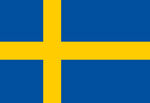
Swedish I (A1 /4 SWS): Dieser Kurs ermöglicht Studierenden einen schnellen und effektiven Einstieg in die schwedische Sprache. In einfachen Kommunikationssituationen aus dem Alltags- und Universitätsleben werden die vier Kompetenzen Hören und Sprechen, Lesen und Schreiben vermittelt. Du erwirbst den Basiswortschatz und erlernst die grammatischen Grundlagen, eingebettet in anwendungsbezogene Kontexte. Darüber hinaus erfährst du Interessantes über Land und Leute.
Swedish II (A2 / 4 SWS): In diesem Kurs baust du deine bereits erworbenen Schwedisch-Kenntnisse aus. Die vier Kompetenzen Hören, Lesen, Sprechen und Schreiben werden systematisch und anwendungsbezogen erweitert, Grammatikkenntnisse und Wortschatz werden vertieft. Du lernst, dich in allgemeinen und studienbezogenen Routine-Situationen sprachlich angemessen auszudrücken. Darüber hinaus erweiterst du dein landeskundliches Wissen.
- Spanish
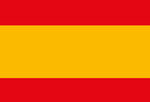
Spanish I (A1 / 4 SWS): Dieser Kurs ermöglicht Studierenden einen schnellen und effektiven Einstieg in die spanische Sprache. In einfachen Kommunikationssituationen aus dem Alltags- und Universitätsleben werden die vier Kompetenzen Hören und Sprechen, Lesen und Schreiben vermittelt. Du erwirbst den Basiswortschatz und erlernst die grammatischen Grundlagen, eingebettet in anwendungsbezogene Kontexte. Darüber hinaus erfährst du Interessantes über die spanischsprachige Welt.
Spanish II (A2 / 4 SWS): In diesem Kurs baust du deine bereits erworbenen Grundlagen der spanischen Sprache aus. Die vier Kompetenzen Hören, Lesen, Sprechen und Schreiben werden systematisch und anwendungsbezogen erweitert, Grammatikkenntnisse und Wortschatz werden vertieft. Du lernst, dich in allgemeinen und studienbezogenen Routine-Situationen sprachlich angemessen auszudrücken und erweiterst auch dein landeskundliches Wissen.
Spanish III (B1 / 4 SWS): This course is designed for advanced learners of Spanish. Language skills are expanded in a targeted and application-oriented manner, grammar knowledge and vocabulary are further deepened. You will practice expressing yourself appropriately in general and study-related situations. The course is supplemented by a study of the country and topics related to current events.
- Intercultural Competence
Humanities I: Intercultural Communication (4 SWS): This course addresses German and international students alike! Dive into a transformative journey of understanding identity and embracing diversity. In an increasingly interconnected world, intercultural competence is essential. This course equips you with the knowledge and communication skills needed to bridge cultural gaps and communicate effectively. You will enhance your self-awareness, reflect on your own cultural background and learn techniques to address conflicts constructively within multicultural contexts, fostering understanding and collaboration.
English proficiency at level B2 is recommended, but not formally required.Humanities II: Global Citizenship (4 SWS): In this course, we will examine the key themes of international relations and globalization from various perspectives: a temporal perspective encompassing past and present, a spatial perspective ranging from local to global, and the theory-practice continuum, where we intertwine theoretical knowledge with practical activities.
Embark on a journey into the concept and practice of global citizenship in today's interconnected world. Through a multidisciplinary approach, you will examine the rights, responsibilities, and ethical considerations associated with being a global citizen.
You will explore the interconnectedness of local and global issues, critically analyzing topics such as social justice, sustainable development, human rights, and intercultural understanding.
Interactive discussions, case studies, and experiential learning activities will foster a deep understanding of the challenges and opportunities inherent in global citizenship. Through engagement with real-world scenarios and collaborative projects, you will further develop practical skills in communication, empathy, and cross-cultural competency.
English proficiency at level B2 is recommended, but not formally required.Intercultural Competence (4 SWS): “Does ‘no problem’ always mean ‘no problem’?” In this interactive course, you will learn and work together with students from other cultures to develop your intercultural competences. Taking an experiential and practical approach, the course goes beyond acquiring knowledge about culture. Instead, you will engage in activities and projects and be encouraged to critically reflect on your intercultural experiences and develop coping strategies how to best navigate the complexity of cultural diversity. We will explore the concepts of cultural dimensions as useful tools to understand culturally shaped behavioral patterns, learn how to mitigate unconscious biases in intercultural encounters and apply how to interact effectively across cultures. Continuous reflection and exchange will help to sustain your intercultural learning. The course is composed of synchronous and asynchronous parts and is open to international and local students from all departments.
Further services offered by the language center

In addition to the course program, the Language Center also offers other services:
- For applications to international Master's programs, for ERASMUS semesters abroad or a DAAD scholarship, a DAAD language certificate is often required. We usually offer a DAAD language test once per semester for a fee. If you are interested, please contact sprachenzentrum(at)th-luebeck.de to find out when the next exam will take place.
- We will gladly issue you a certificate of attendance if you take a language course and attend at least 75% of the sessions.
- We offer English courses for employees.
- We are at your disposal with competent advice in all language matters.
Contact
If you have any questions about our course offerings, please contact us by phone, email or visit us by appointment.
Visiting and postal address:
TH Lübeck Language Center
Building A.1, Room 0.45
Mönkhofer Weg 239
23562 LübeckPhone: 0451 - 300 5735
E-mail: sprachenzentrum(at)th-luebeck.deHead of Language Center
Nina Dethlefs M.A. Telefon: +49 451 300 5732 E-Mail: nina.dethlefs@th-luebeck.de Raum: A.1 36-0.44 Language Center - Assistant
Stefanie Meyer Telefon: +49 451 300 5733 E-Mail: stefanie.meyer@th-luebeck.de Raum: A.1 36-0.45 Language Center - Assistant
- English
- Quality Management - Additional qualification
TH Lübeck is one of only a few universities in Germany where students can acquire an additional qualification in the field of quality management that is recognized throughout Europe. The additional qualification is associated with a certificate from the German Society for Quality (DGQ). It is offered at the TH Lübeck in the Department of Applied Natural Sciences, Biomedical Engineering course. Students from all departments have the opportunity to participate.
Our mission
We enable students from all departments of the TH Lübeck to acquire practical action competence in the field of value-adding, process-oriented quality management. We enable students to act responsibly and goal-oriented independently and to work in teams.
Our vision
We train "Lübeck value-added students" in the sense of students who create added value for their future employers: Lübeck value-added students are in a position to practically apply the tools of value-added management systems at their future workplace beyond the specialist qualification acquired with their university degree and thus to make a contribution to the sustainable success of the company that is comprehensible and recognizable for the employer. Students are already given an introduction to practical work during their studies, and this practical experience is valued by employers: Lübeck value-added students are immediately employable after their studies.
Training path from QSMJ to auditor
The DGQ certificate "Quality Systems Manager Junior" (QSMJ) acquired in the course of QM training at the TH Lübeck can serve as a basis for further qualification in the field of quality management. The following figure outlines the training path from QSMJ to auditor as offered by DGQ.
![['English'] Ausbildungsweg vom QSMJ bis zum Auditor ['English'] Ausbildungsweg vom QSMJ bis zum Auditor](/fileadmin/_processed_/8/f/csm_DGQ_QM-Zertifikate_3165bc8ab3.png)
Show full description
Das Bild zeigt eine Übersichtsgrafik zum Ablauf und den Zertifikaten im Bereich Qualitätsmanagement nach DGQ-Standard, die an der Fachhochschule Lübeck erworben werden können. Im oberen Bereich steht der Titel „Qualitätsmanagementzertifikate DGQ“. Darunter ist ein Kasten mit der Grundlage: „Absolvieren der QM-Ausbildung an der Fachhochschule Lübeck auf Basis des DGQ BLH-Modells und entsprechender Hochschulabschlüsse“. Rechts daneben werden vier aufeinanderfolgende Kurse dargestellt: Qualitätsmanagement I (Grundlagen, 5 Tage), Qualitätsmanagement II (Methoden, Anwendung und Kommunikation, 4 Tage), Qualitätsmanagement III (Didaktik, Analyse und Statistik, 5 Tage) und Qualitätsmanagement IV (Strategie, Integration und Weiterentwicklung, 4 Tage). Links befindet sich ein Zertifikat mit dem Hinweis „Zertifizierung zum DGQ-Quality Systems Manager Junior“. Im unteren Bereich wird der weitere berufliche Spezialisierungsweg gezeigt: Nach dem DGQ-Quality Systems Manager Junior Zertifikat können eine DGQ-Prüfung zum Qualitätsmanager, ein Auditor-Lehrgang (4 Tage) und schließlich die DGQ-Prüfung zum Auditor inkl. EOQ Quality Auditor abgelegt werden. Die Grafik verwendet Pfeile und farbige Kästen zur Veranschaulichung der Abfolge.
Quality Management in medical technology
In the medical technology specialization, QM training consists of several modules. These include lectures with exams, seminars and group work, as well as a practical study project. Together with their university degree, students can subsequently receive the DGQ certificate "Quality Systems Manager Junior".
Students of biomedical engineering, majoring in quality management / quality and safety engineering, can acquire the additional qualification as part of their studies without additional expense.
Students of other study programs can achieve the additional qualification by completing the courses as additional, elective or compulsory elective subjects and by writing a student research project with a quality-relevant task.
In the following, you will find more detailed information on quality management in medical technology and on the courses relevant to certification. Do you still have questions? Write to qm-zusatzqualifikation@th-luebeck.de .
The use of medical devices enables patients to alleviate or cure their illness or even to continue to survive. Medical devices must therefore meet exceptional quality standards in terms of functionality and usability as well as safety and reliability. At the same time, they are subject to demanding legal regulations.
In order to master these challenges, manufacturers of medical devices must, in addition to their technical know-how, have a firm grasp of quality management methods and techniques and be familiar with the legal regulations. Our value-added students should provide them with the best possible support after graduation. For this reason, in addition to comprehensive knowledge in medical technology, we specifically enable students in the areas of quality management and assurance, risk management and regulatory affairs.
The courses relevant for the QSMJ certificate are essentially compulsory subjects from the curriculum of the bachelor's degree program in biomedical engineering, specialization in quality management / quality and safety engineering.
The following successfully passed courses, together with the DGQ student research project (usually in combination with the final thesis) lead to the acquisition of the QSMJ certificate:
- Fundamentals of Quality Management I (Lecture - 2 SWS)
- Fundamentals of Quality Management II (lecture, practical course - 4 SWS)
- Communication and Moderation (Lecture - 2 SWS)
- Product Audit (Lecture, Project - 3 SWS)
- QM for Products/ Statistical Methods (Lecture, Practical - 3 SWS)
- Risk Management/ Reliability and Safety Analysis (Lecture - 4 SWS)
- System and Process Audit (Lecture, Practical - 2 SWS)
- Total Quality Management (Lecture - 2 SWS)
Contact person QM
In order to be able to offer students the "Quality Systems Manager Junior" qualification, universities must apply to DGQ on their own initiative under the leadership of a university teacher. If the application is successful, DGQ will appoint the university teacher as a so-called BLH representative at his or her university (BLH = Advisory Board of DGQ for Teaching at Universities).
Prof. Wang is the BLH representative at the TH Lübeck and supervises together with the DGQ tutors (qm-zusatzqualifikation(at)th-luebeck.de) the offer of the additional qualification.Prof. Dr.-Ing.
Wen-Huan WangTelefon: +49 451 300 5193 E-Mail: wen-huan.wang@th-luebeck.de Raum: F.9 21-1.12
